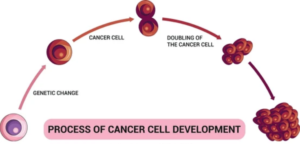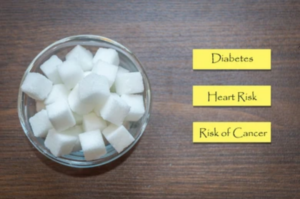The link between sugar and cancer has been a subject of growing concern. People often wonder “Can sugar cause cancer” or worsen its progression? This fear stems from the belief that sugar feeds cancer cells, potentially speeding up their growth. While these concerns are understandable, it’s important to approach this question with evidence-based insights.
According to Dr. Sandeep Nayak, an esteemed cancer specialist in Bangalore and the Founder of MACS Clinic, “While sugar doesn’t directly cause cancer, excessive consumption can lead to obesity and other metabolic disorders, which are risk factors for cancer. Maintaining a balanced diet and a healthy lifestyle plays a key role in cancer prevention.”
At MACS Clinic, expert care and guidance empower patients to make informed decisions about their lifestyle and treatment options. Dr. Sandeep Nayak and his team specialize in offering personalized cancer treatment in Bangalore, ensuring patients receive the highest standard of care. From dietary advice to advanced medical interventions, every aspect of care is tailored to the individual’s needs.
Understanding Sugar and Its Role in the Body

Sugar, or glucose, is the primary source of energy for the body. It fuels essential functions, including brain activity, muscle movement, and cell repair. Consuming sugar in its natural forms, such as fruits and whole grains, provides essential nutrients alongside energy.
However, excessive sugar consumption, particularly from processed foods, can lead to health issues such as obesity, diabetes, and inflammation. Maintaining a balanced diet is essential. Understanding the role of sugar in your diet can empower you to make healthier choices without unnecessary fear.
Are you concerned about how sugar affects your body? Consult an expert to understand the link between diet and cancer prevention.
Curious to know if sugar has a direct connection to cancer? Let’s explore the facts.
Does Sugar Directly Cause Cancer?
The belief that sugar directly causes cancer is a misconception. While cancer cells do consume more glucose than normal cells due to their higher energy demands, this doesn’t mean sugar is the primary cause of cancer. The body gets glucose from carbohydrates, and all cells, including healthy ones, need it for energy. Cancer growth is driven more by genetic mutations and other factors.
Research shows that excessive sugar intake is linked to obesity, diabetes, and inflammation, all of which can indirectly increase cancer risk. However, sugar itself does not directly cause cancer.
Dr. Sandeep Nayak notes, “It’s not about eliminating sugar entirely, but understanding how it fits into a balanced diet to reduce cancer risks.” Eating a diet rich in whole foods, vegetables, and lean proteins while limiting processed and sugary foods can help promote overall health and well-being.
Does science support the connection between sugar and cancer cell growth? Let’s find out.
The Science Behind Sugar and Cancer
The relation between sugar and cancer relates to how cancer cells metabolize glucose. While all cells require glucose for energy, cancer cells consume it at a much higher rate, a phenomenon known as the Warburg Effect. This rapid glucose uptake supports the growth of cancer cells, leading to concerns about sugar’s role in cancer progression.
Although sugar does not directly cause cancer, excessive consumption can raise cancer risks. High sugar intake is linked to obesity, insulin resistance, and chronic inflammation, all of which create an environment that may promote cancer. For example, obesity can lead to hormonal imbalances and elevated insulin levels, while chronic inflammation can damage DNA.
Research suggests that a balanced diet can help reduce these risks. By cutting back on refined sugars and processed foods and focusing on whole, nutrient-dense foods, individuals can maintain healthy glucose levels and lower the risk of developing cancer-related metabolic disorders. Experts advise moderating sugar intake rather than eliminating it altogether as part of a healthy lifestyle.
Want to understand the link between sugar and cancer cell growth in more detail? Speak to an experienced specialist about the impact of sugar on cancer and ways to reduce your risk.
Worried about consuming too much sugar? Let’s discuss safe limits.
How Much Sugar is Too Much?
Determining the appropriate amount of sugar to consume can be difficult, especially when considering its potential indirect effects on cancer risk. The World Health Organization (WHO) recommends that added sugars should account for less than 10% of total daily calorie intake, which equates to about 25 grams (6 teaspoons) for an average adult.
Exceeding these limits regularly can lead to weight gain, insulin resistance, and other metabolic issues that may increase cancer risk factors. Excessive sugar consumption often comes from hidden sugars in processed foods, sugary beverages, and snacks. These sources can easily push daily intake beyond the recommended levels without individuals realizing it. While naturally occurring sugars in fruits and dairy are not a concern when consumed in moderation, added sugars are a major contributor to unhealthy dietary patterns.
Moderation is key when it comes to sugar intake. Monitoring portion sizes, reading food labels, and opting for whole, unprocessed foods can help maintain a balanced diet. Experts stress that reducing sugar intake not only supports overall health but also minimizes risks associated with obesity and chronic diseases, which are linked to higher cancer risks. Adopting these habits can lead to better long-term health outcomes.
Conclusion
The relationship between sugar and cancer cell growth is complex and often misunderstood. Understanding how sugar interacts with the body and adopting a balanced diet can empower individuals to make healthier choices and potentially reduce their cancer risks.
MACS Clinic, led by Dr. Sandeep Nayak, offers comprehensive cancer treatment in Bangalore rooted in evidence-based practices. With expertise in advanced cancer care and a patient-first approach, team MACS is dedicated to addressing concerns and providing personalized care to help patients navigate their health journey with confidence.
CTA: Ready to take control of your health? Get in touch with an expert to learn more about how to reduce your cancer risk through diet and lifestyle changes.
Frequently Asked Questions
Does sugar feed cancer?
Sugar does not directly feed cancer, but cancer cells consume glucose at higher rates than normal cells. Excessive sugar intake can contribute to obesity and insulin resistance, which are linked to increased cancer risks. Moderation is key to maintaining overall health.
Is sugar consumption linked to all types of cancer?
Sugar intake is more strongly associated with cancers related to obesity, such as breast, colorectal, and pancreatic cancer.
Can a high-sugar diet affect cancer treatment?
A high-sugar diet may impact overall health. It could affect the body’s ability to fight cancer or recover from treatment.
What foods should I avoid to reduce cancer risk?
Limiting processed foods, sugary beverages, and foods high in refined carbohydrates can help reduce cancer risk.
Is it safe to consume natural sugars like fruit?
Natural sugars found in fruits are generally safe in moderation and offer health benefits, unlike processed sugars.
Does sugar increase the likelihood of cancer recurrence?
While there’s no direct evidence, reducing sugar intake may improve overall health and reduce the risk of recurrence.
Can sugar affect my immune system?
Excessive sugar intake can impair the immune system, potentially making it harder to fight off illnesses, including cancer.
What are the signs of excessive sugar consumption?
Symptoms include fatigue, weight gain, and an increased risk of developing insulin resistance.
Disclaimer: This page is intended for informational purposes and not for promotional use.




